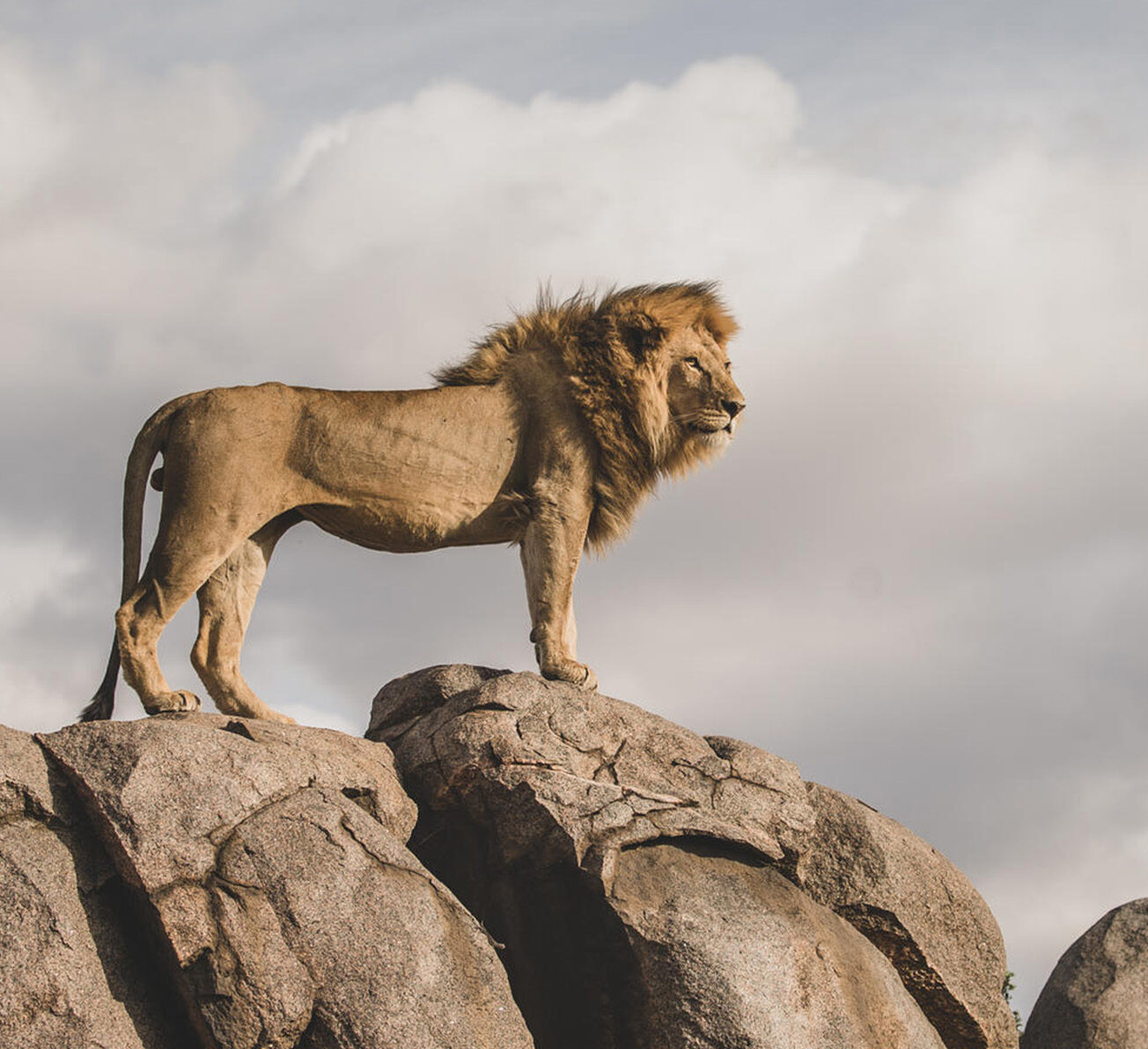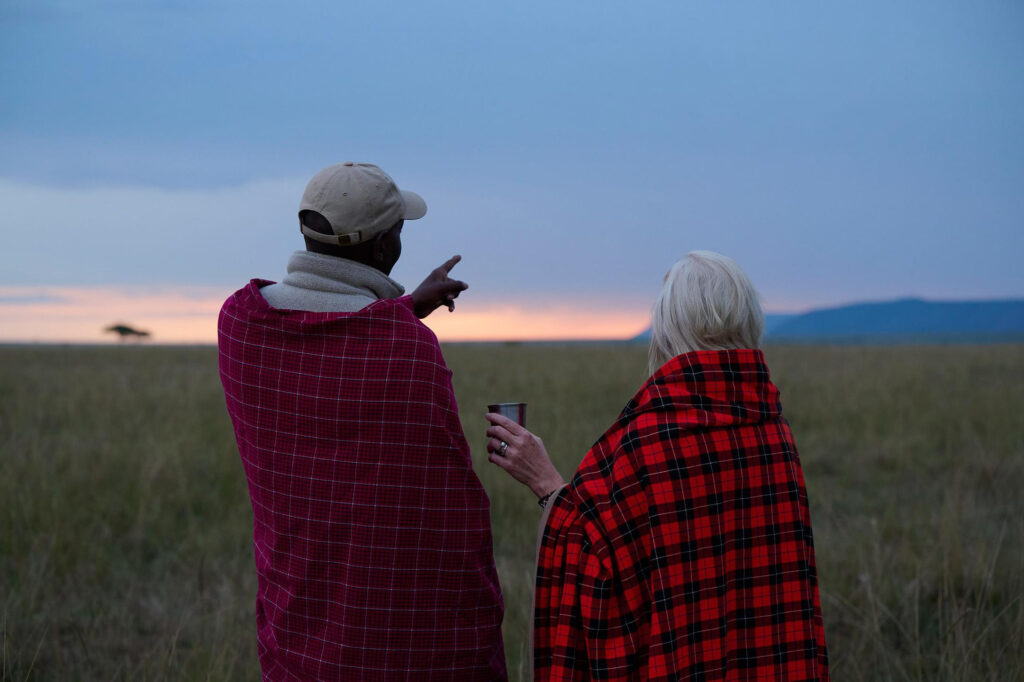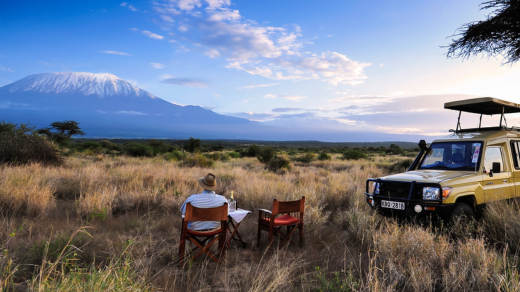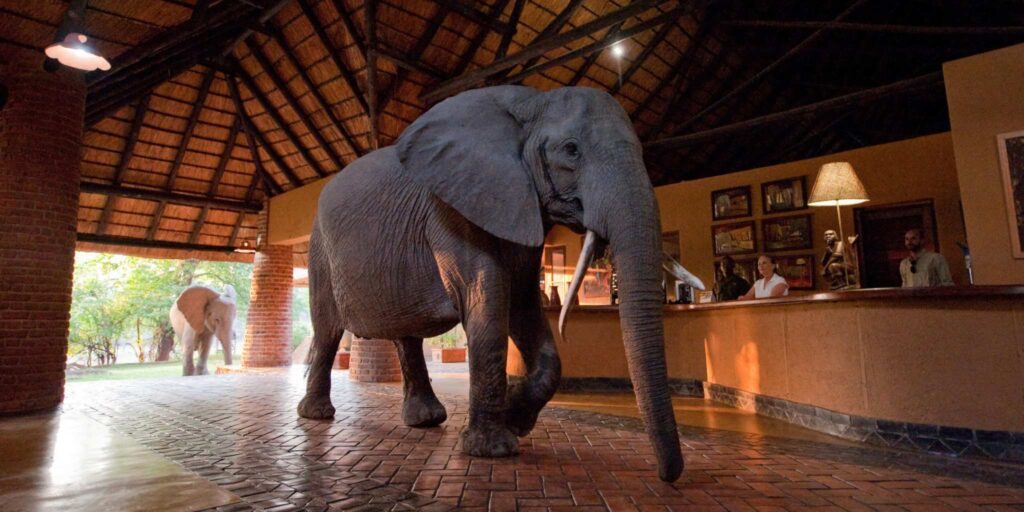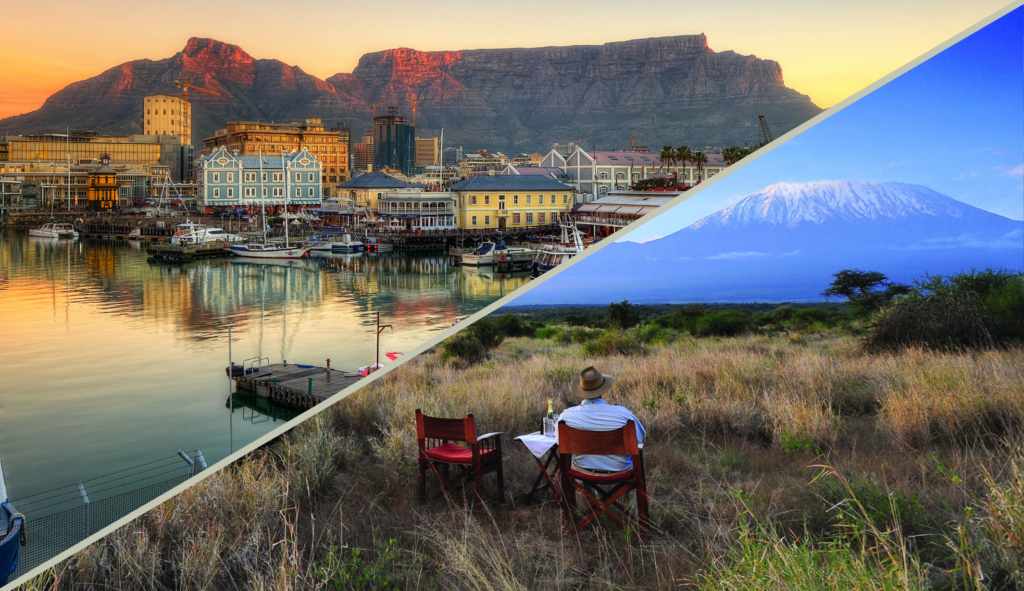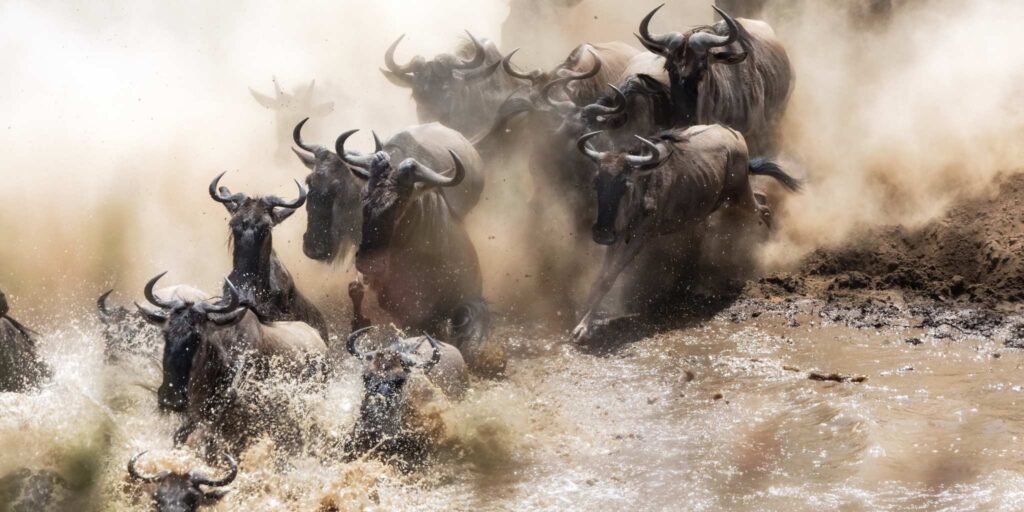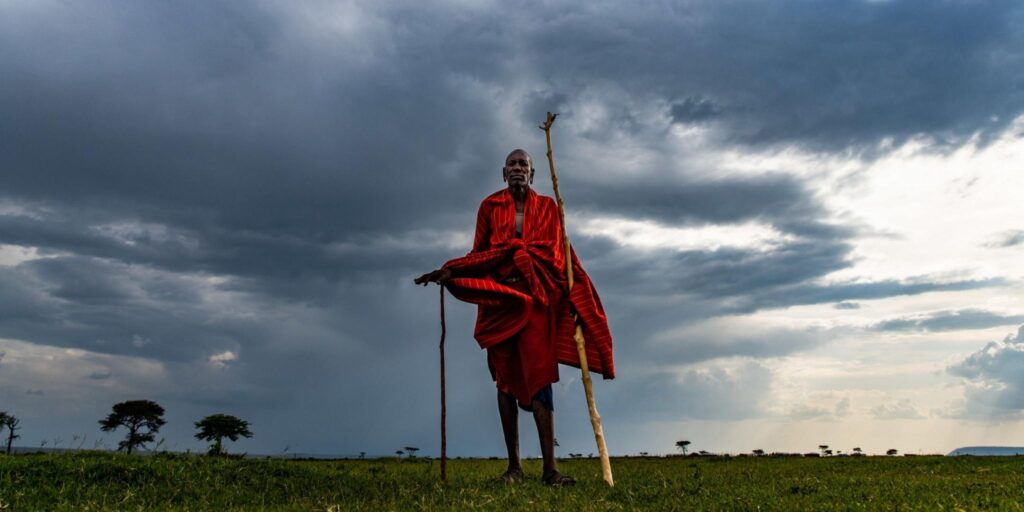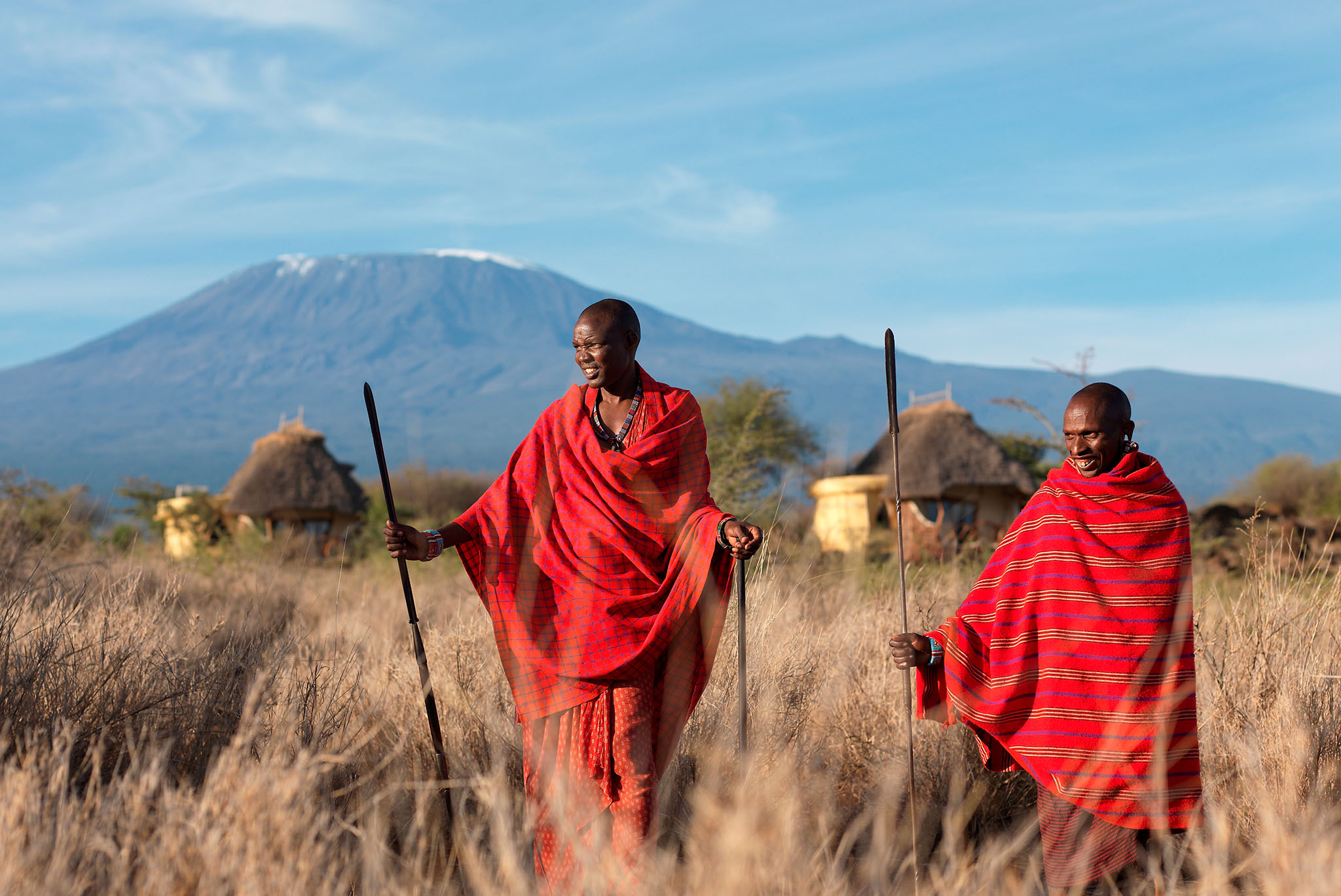
Kenya
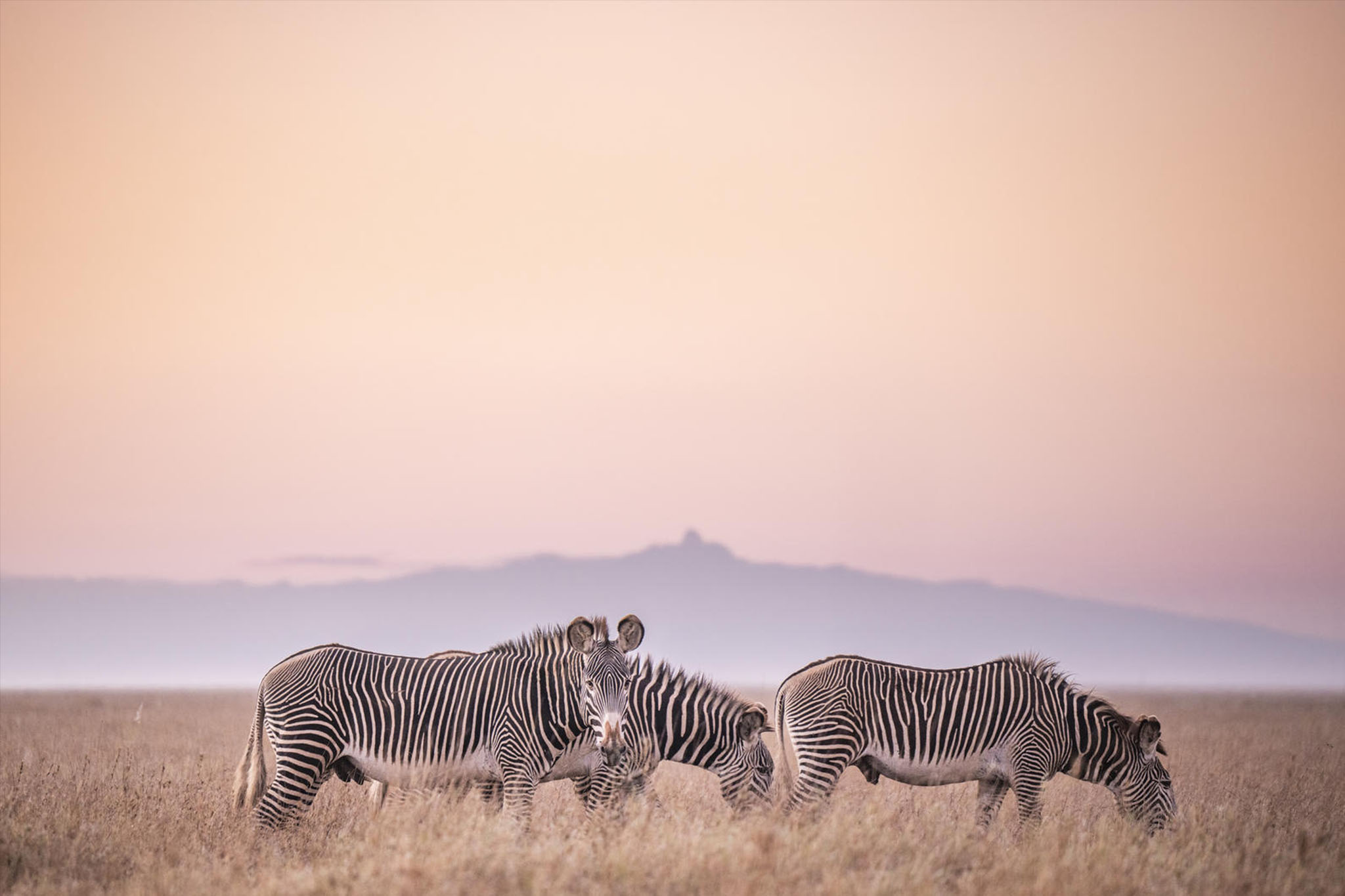
Kenya Safari Tours and Holidays
Kenya is where the story of safari travel truly began. The word safari comes from Swahili, meaning journey, and no country brings that idea to life quite like this one. Tucked just below the Horn of Africa, Kenya was the first place where travellers set out to witness Africa’s wildlife in the wild and it remains one of the most iconic places on earth to do so.
The plains of the Masai Mara roll endlessly into the distance, scattered with desert-date trees and threaded with rivers that draw wildlife from every direction. Here, game viewing feels effortless. Elephants wander through the grasslands, lions doze in the shade, and great herds shift across the landscape with the seasons. A safari in Kenya is more than just a journey it is a connection to something timeless.
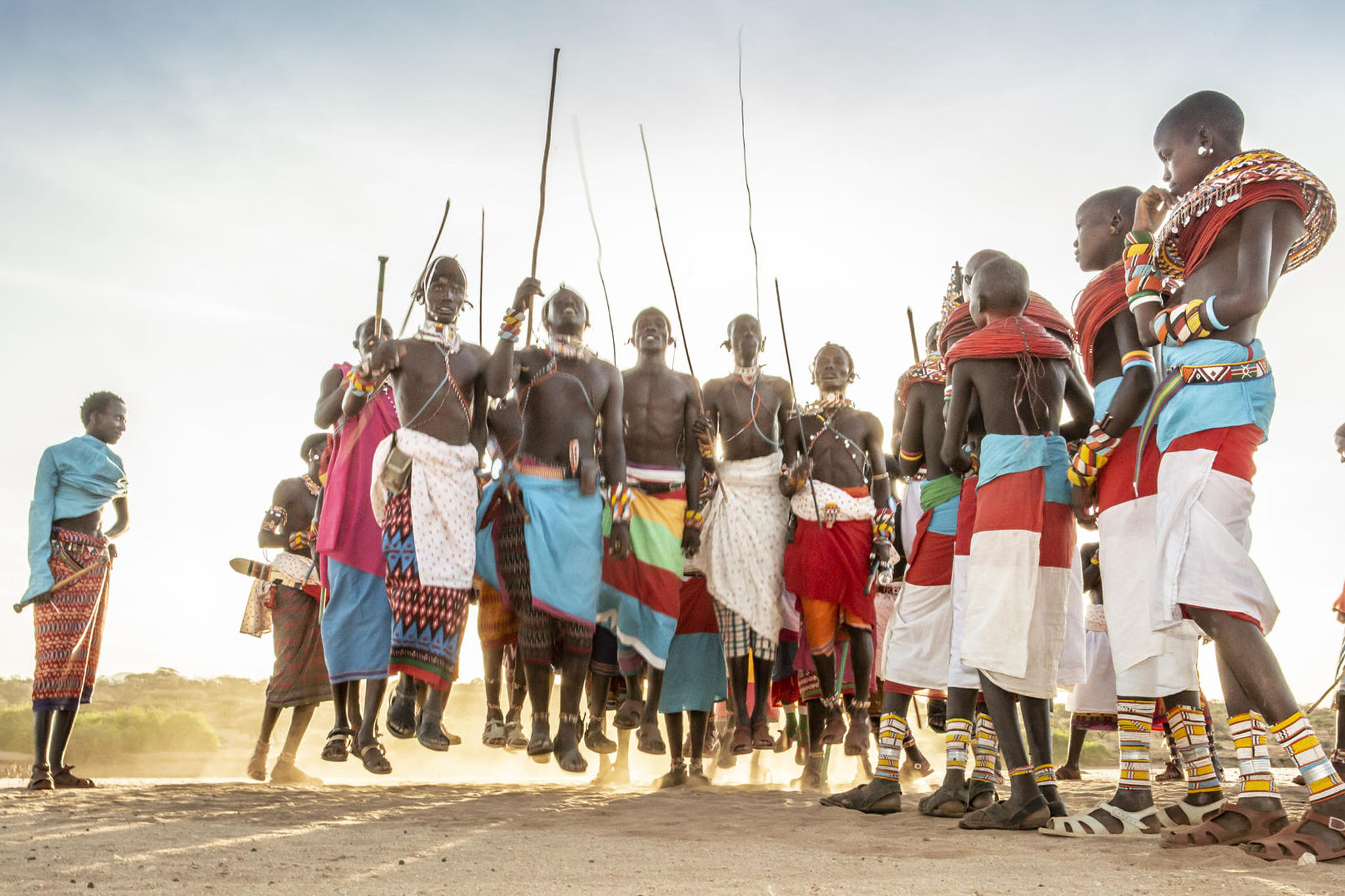
Why should I book a Kenya holiday?
In the 1920s, travellers came to Kenya on foot, carrying canvas tents and a spirit of wonder, drawn by the chance to encounter wildlife found nowhere else. While safaris have evolved, that sense of discovery remains.
Much of Kenya remains vast and unfenced, allowing animals to follow ancient migration routes across the land. This freedom makes every safari here feel deeply wild and alive, connecting you to both nature and the people who call it home.From the vast plains of the Masai Mara and Amboseli beneath Kilimanjaro to the red earth of Tsavo, Kenya offers stunning and diverse landscapes. Nairobi, a vibrant hub, blends city life with pockets of wilderness where wildlife thrives.
But Kenya’s true richness lies in its people. Kenya is home to a rich tapestry of culture; dozens of distinct tribes, each with its own language, traditions, and culture. From the Maasai and Samburu to the Swahili along the coast. Ask anyone, and they will tell you that Kenya’s people are some of the warmest and most welcoming you will ever meet. We often say, you’ll visit for the wildlife but you’ll return for the people.
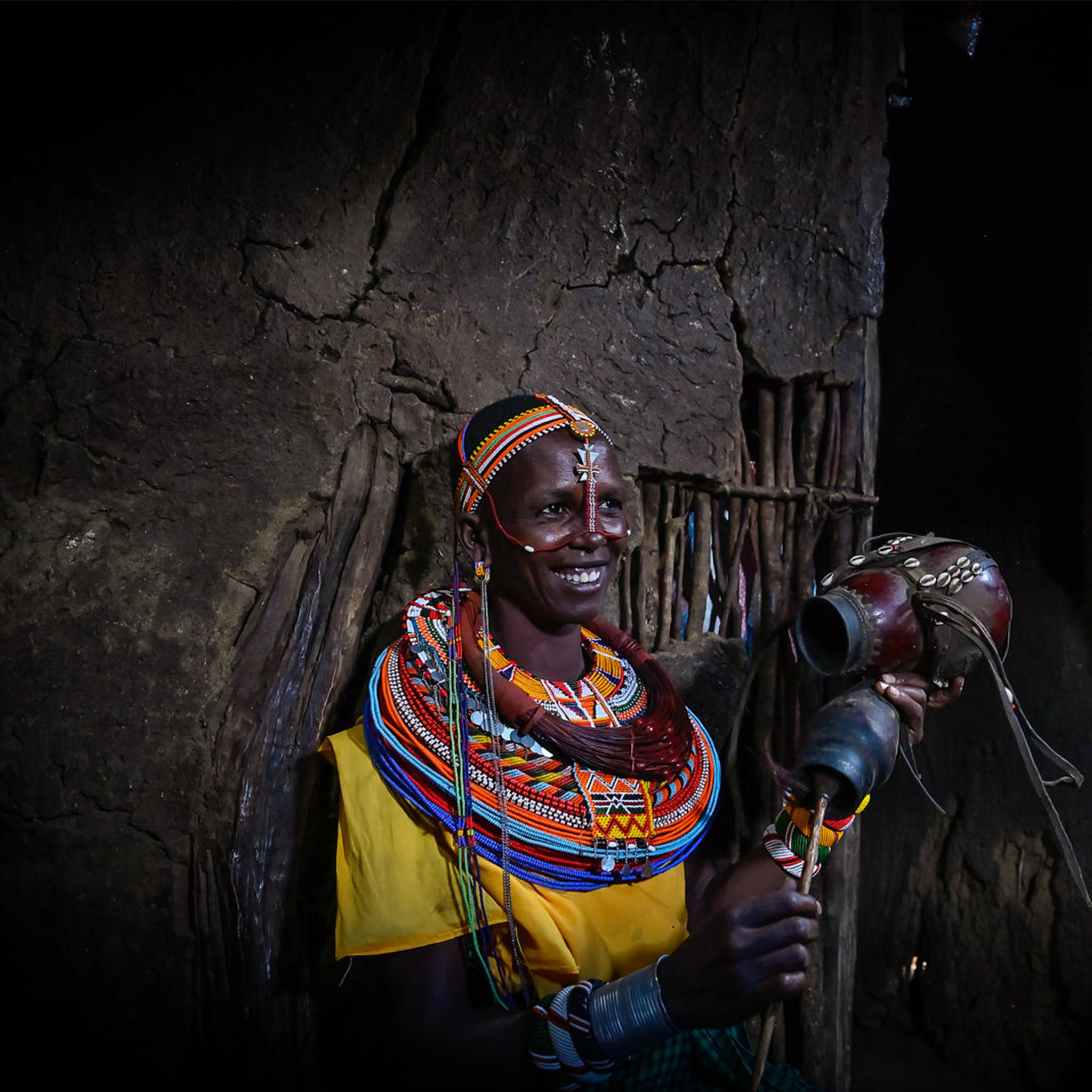
At a glance
- Full Country Name Republic of Kenya
- Area 583,000 sq km
- Population 46.66 million (UN 2015)
- Capital and largest City Nairobi
- Borders Ethiopia, Somalia, Sudan, Tanzania and Uganda
- Religion Christian, Animist, Muslim
- Time Zone Standard time is three hours in advance of Greenwich Mean Time
- Languages English and Swahili are the official languages and are taught in schools throughout the country. However, there are many other tribal languages including Kikuyu, Luhia, Luo and Kikamba as well as many minor tribal languages
- Country Dialling Code +254
Kenya highlights
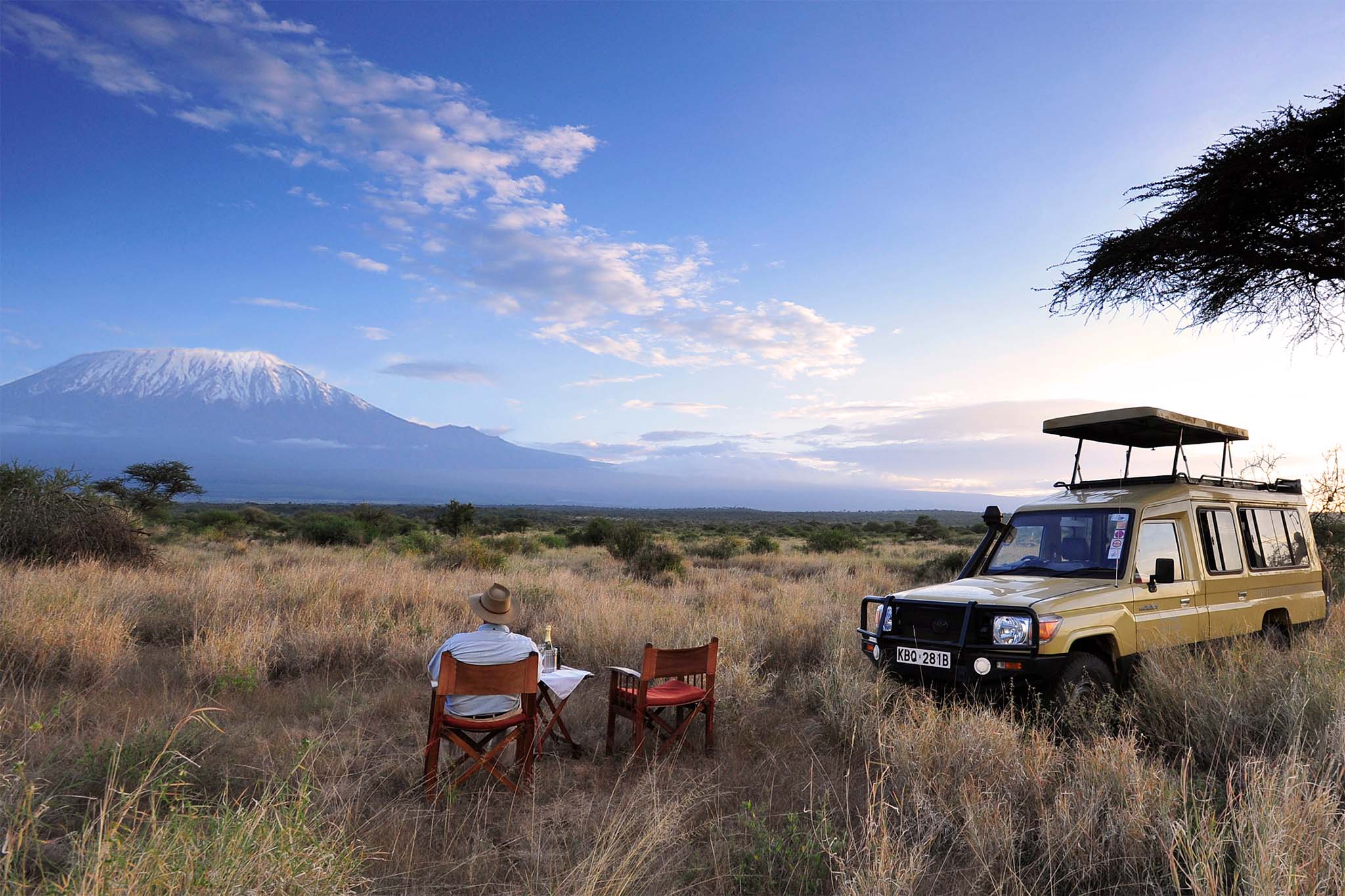
Amboseli National Park
Amboseli is a place of big skies and even bigger views. Set against the snow-capped backdrop of Mount Kilimanjaro, this iconic Kenyan park is known for its wide open plains and its vast herds of elephants. Here, wildlife moves through a landscape of swamps, acacia woodland and dry lakebeds, with the mountain always rising in the distance. Amboseli is a photographer’s dream and a place where the rhythm of life on the plains unfolds in full view.
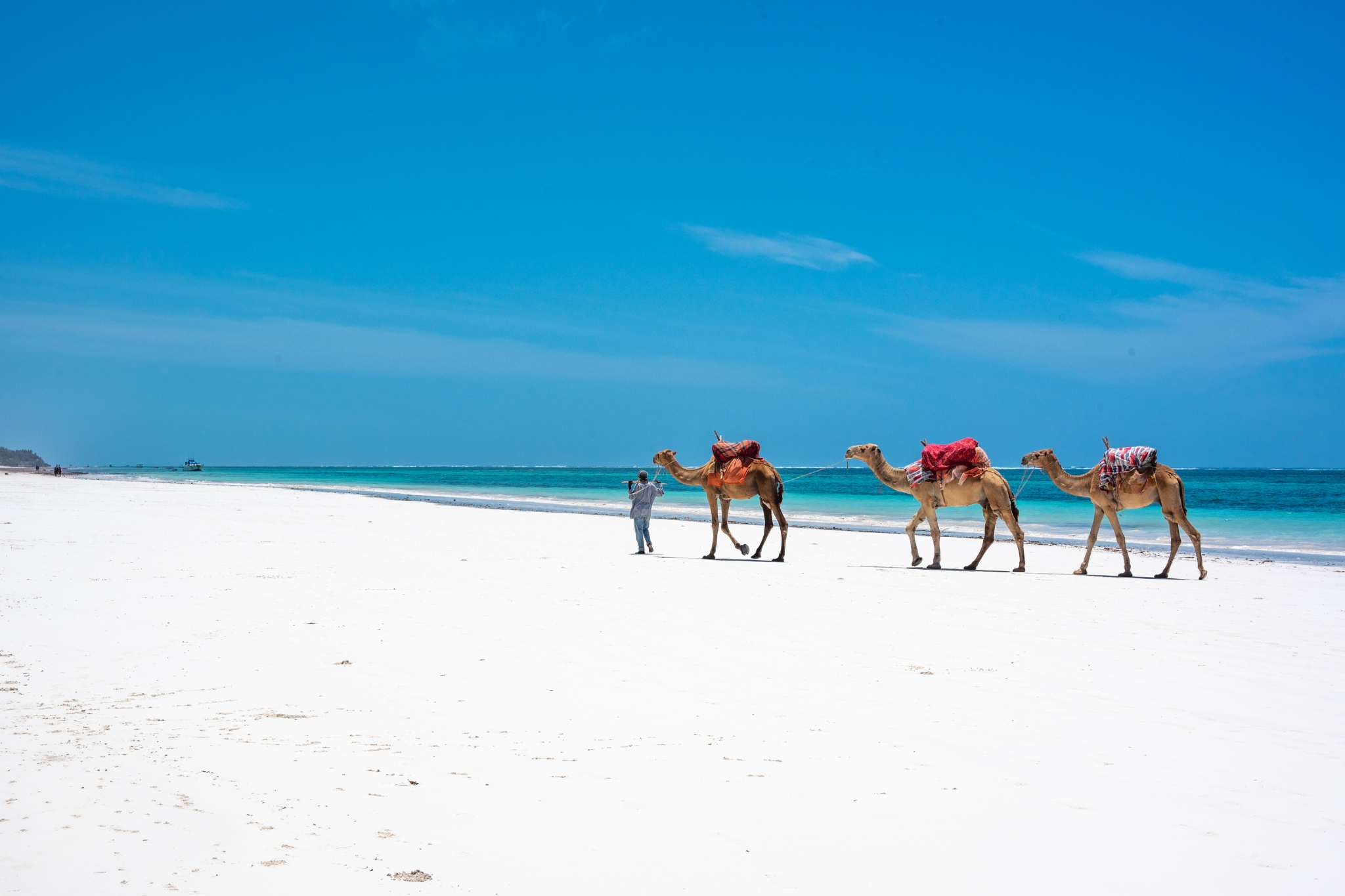
Diani
Diani Beach in Kenya, voted one of the world’s best, is known for its white sands, turquoise waters, coral reefs, and rich Swahili culture.
Diani
Diani Beach in Kenya, often voted one of the world’s best beaches, is famous for its white sands, turquoise waters, and vibrant coral reefs. Beyond the beach, visitors can explore local Swahili culture, coastal towns, and nearby wildlife reserves, combining relaxation with cultural and natural highlights.
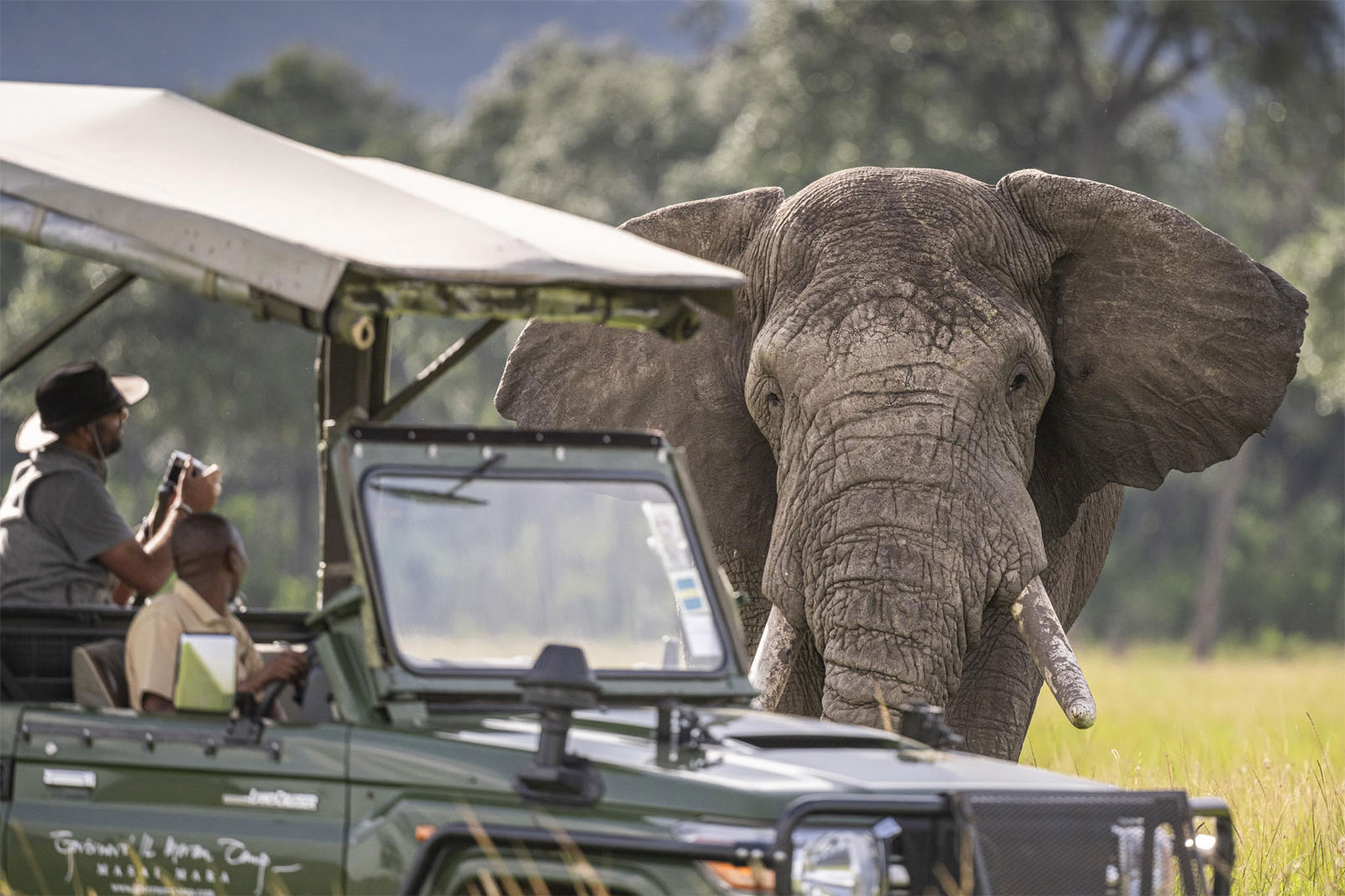
Masai Mara
The Masai Mara is one of Africa’s most celebrated wildlife areas. Its open grasslands and scattered acacia trees set the stage for dramatic encounters between predator and prey, especially during the Great Migration when thousands of wildebeest and zebra cross from the Serengeti. Lions rest in the shade, cheetahs scan the horizon and elephants move quietly through the plains. Home to the Maasai people, whose traditions are deeply tied to the land, the Mara offers both rich wildlife and a powerful sense of place.
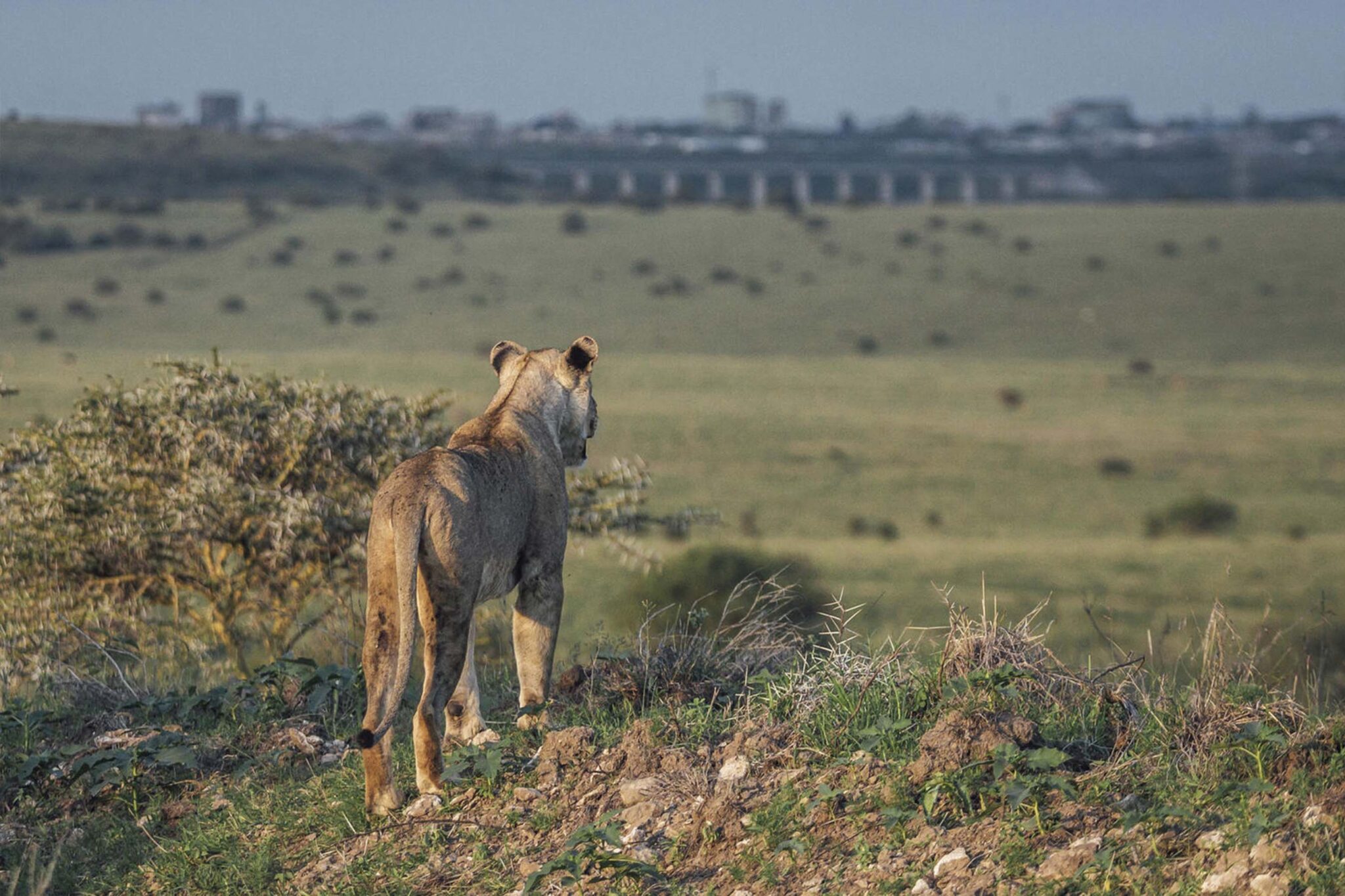
Nairobi
Nairobi is a city of energy and contrast. Glass towers rise above streets filled with matatus and market stalls. Just beyond the traffic, lions move through the grasslands of Nairobi National Park with the skyline behind them. Museums, craft centres and local eateries reflect the many cultures that shape daily life. Nairobi hums with movement and grit, a place where tradition and modern life meet.
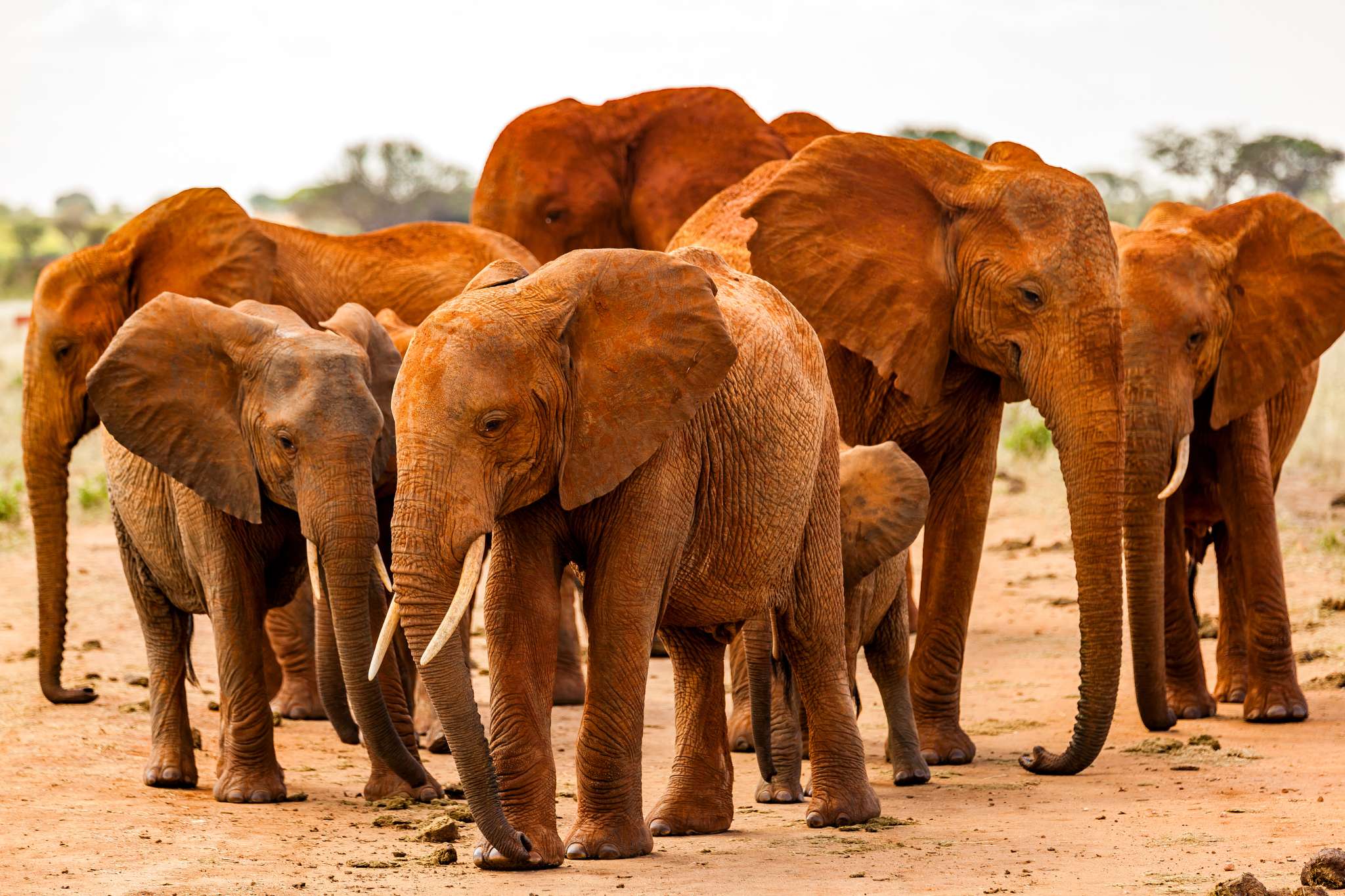
Tsavo National Park
Tsavo is one of Kenya’s wildest landscapes. Vast, remote and largely untouched, it stretches across ancient lava fields, grasslands and rivers where dust-red elephants roam in peace. Featured in Barack Obama’s 'Our Great National Parks', Tsavo was described as “a place where elephants still have room to roam, and where nature is still in charge.” It’s a park that speaks to the scale and freedom of old Africa—quiet, powerful, and deeply alive.
Kenya experiences
Blog posts on Kenya
Essential trip information
-
Accommodation
-
Accommodations in Kenya range from intimate tented camps to more expansive lodges, each chosen for its proximity to wildlife and natural surroundings. Many are positioned along rivers, overlooking watering holes, or on elevated points where the plains stretch endlessly, offering a quiet front-row view of the savannah. Some camps have just a handful of tents, allowing for a sense of privacy, while larger lodges maintain a calm and unhurried atmosphere despite their size. The design of these spaces often reflects the environment, letting guests feel part of the landscape while enjoying thoughtful modern touches. When selecting where to stay, consider the surroundings as much as the comforts because the scenery itself becomes an integral part of your safari.
Adventure Camping
We recommend this for the more intrepid travellers who want to get their hands dirty! Guests will put up their own tents and may be required to help around the campsite. The basics are catered for, as well as two-man tents and sleeping mats and campsites preselected to stay at along the journey. The amenities at these campsites can vary quite drastically depending where you are in Africa and what you pay. For example in the Serengeti there is no running water at the campsites, however in other parts of Africa the campsite may have a swimming pool.
Fully Serviced Camping
For those that want to experience a traditional safari, under canvas but would still like the chance to relax and take time to enjoy their environment we would recommend fully serviced camping. On arrival the mobile camp is set up and ready to go. The tents are spacious and can be really quite luxurious, often with camp beds and en-suite bathrooms, as well as a full staff of chefs, waiters and other helping hands. Here you will have lighting, hot water and cold drinks but you still have that amazing feeling of being at one with nature!
Luxury Tented Camping
Luxury tented camps are a very popular choice on safari because these camps are very intimate, usually with no more than 20 tents on site. These luxury tents offer spacious rooms with electricity, proper beds, as well as en-suite bathrooms with running hot and cold water. The cuisine and service is of a very high standard and you will eat like a king, with 3 decadent meals a day, as well as snacks. All luxury tented camps offer an all-inclusive package to incorporate meals, local drinks and game viewing activities. At night you can still go to sleep, under canvas with the sounds of the African wilderness around you. This is how you do safari in style!
Safari Lodges
Safari Lodges vary considerably in size and architectural design but essentially these are much more permanent structures, often with many more rooms than luxury tented camps. They will often have a swimming pool and conferencing facilities. A lodge will celebrate the nature surrounding it and will usually blend in with its surrounds and built making natural, locally sourced materials.
Hotels
This would commonly be the largest of all the accommodation types but again can vary quite dramatically in style, size and the amenities that it offers. There is typically a reception area, with rooms opening directly onto a hallway. They would be less exclusive that the aforementioned accommodation types, with restaurants and other facilities open to the public.
Boutique Hotels
A boutique hotel is a 5-star establishment providing all the features and facilities of a standard hotel but is always unique and very stylish. These properties are usually smaller and more intimate than a hotel and offer a very high-end service. Note Hotels, lodges and tented camps in Africa range from good tourist standard to award- winning deluxe properties. On occasions it may be necessary to change a hotel, lodge or camp due to various reasons, which would be out of the control of Bench Africa. In this situation we will make every effort to give you as much advance warning as possible. In the event of this happening we may not be able to send out up-to-date information on this substitute property. For more information on the individual hotels, lodges or tented camps where you will be staying please refer to your itinerary or speak to one of our Africa experts.
Note
Very occasionally, circumstances beyond Bench Africa’s control may require a change in the assigned lodge, camp, or hotel. In such instances, we will make every effort to notify you in advance, although up-to-date information on substitute properties may not always be available.
-
Clothing
-
General Information
In most of Africa, formal attire is typically unnecessary; therefore, we recommend limiting your luggage to the basics. However, more formal attire may be necessary in prestigious city hotels or during luxury rail journeys, such as Rovos Rail or the Blue Train in South Africa.
On a wildlife safari, casual cotton clothing is the most practical. Opting for calm, neutral colours like tan or khaki is advisable, although a specific bush outfit is not essential. It is recommended to wear some form of sun-protective headgear, and sunglasses are essential.
To cope with colder evenings and early mornings, it’s advisable to bring a warm fleece or jacket. Additionally, a lightweight raincoat may prove useful, considering the possibility of seasonal rains. While heavy footwear is unnecessary, it’s advisable to wear sturdy, comfortable walking shoes or boots for nature walks. It’s also recommended to bring a change of shoes, like trainers, for the camp setting.
The dress code is informal at all camps but bring long-sleeved shirts and trousers for the evenings to minimise exposure to insect bites.
Many hotels, game lodges, and camps provide laundry facilities, often as a complimentary service, especially when luggage space is limited. However, if you have a busy itinerary, it is advisable to check in advance that your clothes will be ready before your departure.
Safari Checklist
Essentials:
- Soft-sided bag for easy storage in safari vehicles and light aircraft
- Hat for sun protection
- Reusable water bottle
- Good quality, preferably polarized sunglasses
- Binoculars
- Torch
- Camera, charger, and adaptor
- Travel adaptor for charging devices
- Spare glasses (if you wear contact lenses)
- Comfortable walking shoes, trainers, and sandals
- Shorts/skirts
- Long trousers/slacks
- T-shirts/long-sleeved cotton shirts for cooler evenings
- Sweater/fleece/raincoat for early morning and late afternoon game activities
- Warm jacket, beanie, gloves, and scarf for winter months
- Swimming costume
Health and Safety:
- Basic medical kit (aspirins, Elastoplast, Imodium, antiseptic cream, etc.)
- Malaria tablets and antihistamine cream
- Insect repellent containing DEET (though many lodges provide sprays)
- Protective suntan lotion, especially for pale and sensitive skin
- Tissues or ‘wet wipes’
- Lip balm
-
Communication
-
Kenya has a strong mobile network, especially in urban centres and popular tourist destinations. Major operators include Safaricom, Airtel, and Telkom Kenya, offering widespread 4G coverage in cities like Nairobi, Mombasa, and Kisumu.
Travellers can use eSIMs for convenience, activating a mobile plan digitally without swapping physical SIM cards. Providers such as Airalo, Holafly, and Saily offer data plans for Kenya, ranging from small packages to unlimited data for the duration of your trip. eSIMs are compatible with most modern smartphones and can be activated before or upon arrival.
Internet access is generally reliable in towns and at most hotels, lodges, and camps, though speed and availability can vary. Remote safari lodges may have limited or no connectivity, with Wi-Fi often restricted to common areas or rooms.
-
Country Overview
-
Nestled along Africa’s eastern coast, Kenya stands as a renowned destination celebrated for its wildlife, varied landscapes, and rich culture. Kenya’s commitment to wildlife conservation is prominently displayed in its national parks, reserves, and community-based conservancies. As a prominent safari hotspot, the country proudly hosts world-renowned national parks like the Masai Mara, Amboseli, Samburu, and Tsavo. The Masai Mara, affectionally referred to as ‘the Mara,’ is particularly famous for the Great Migration, a spectacular event where millions of wildebeest and zebras traverse its expansive plains.
Beyond Kenya’s captivating wildlife, the country is a mosaic of diverse cultures, characterised by the presence of over 40 distinct ethnic communities contributing to the rich tapestry of Kenya’s cultural heritage. Amongst them, the Maasai people hold a distinct place, shaping the nation’s identity with their unique traditions.
Kenya’s coastal regions, including Diani and Lamu Island, showcase some of the world’s most beautiful beaches and a chance to explore Swahili culture, cuisine and charming architecture.
Most itineraries will begin and end in Nairobi, the capital city, where you can explore a blend of modernity and historical significance. Attractions such as the Karen Blixen Museum and the David Sheldrick Wildlife Trust provide insights into Kenya’s overall history and context, offering a broader understanding of the nation’s heritage.
-
Electricity
-
Voltage & Frequency
The standard voltage in Kenya is 240V, with a frequency of 50 Hz.
Top Tips
Generators typically supply electricity in most camps and some lodges/camps only have power in the early mornings and evenings. While batteries can often be recharged during the day in camps, it is recommended to confirm with the camp manager.
Socket Types in Kenya
Type G (Irish/British 3-pin)
-
Families
-
Considerations when Travelling with Children
We would not recommend travelling to Kenya with children under the age of 6 as it is not malaria-free.
Accommodation
Most hotels will not charge for children under the age of 2 and usually children under the age of 12 will pay just 50% of the adult rate. Some safari properties will have child-friendly activities and clubs to amuse and educate children.
Exclusive lodges may impose a minimum age limit but speak to one of our Africa experts and they will tailor-make a safari for you and your family.
Why Choose Kenya for your Family Holiday?
Kenya is better equipped to look after small children than a lot of other African countries. Kenya has some of the best beaches in Africa and so ending your family safari at the coast means relaxation for the “big kids” and plenty of fun and excitement for the little ones. Older active children really enjoy the interaction with the Masai people, teaching them their culture and engaging them in activities whilst parents can relax and enjoy their own version of safari.
Allow one of our consultants to design a holiday to suit the needs of you and your family.
-
Food & Drink
-
General guidelines
Kenyan cuisine reflects a rich mix of local, Indian, and European influences, with dishes based on fresh, locally sourced ingredients. Staples include ugali, a maize-based porridge; sukuma wiki, a sautéed green vegetable; nyama choma, grilled meat often served at social gatherings; and fresh fish along the coast. Chapati, pilau, and samosas are commonly enjoyed as snacks or part of a meal.
Restaurants and lodges range from casual local eateries to upscale hotels serving both Kenyan and international cuisine. Street food is widely available, including fried snacks, roasted maize, and samosas, and is generally safe when purchased from clean, busy stalls.
On safari, the dining experience varies by accommodation and almost always features western cuisine, sometimes with local options too. At high-end lodges and luxury tented camps, meals are often freshly prepared with locally sourced ingredients, and can include multi-course dinners with meat, fish, vegetables, and regional specialties. Some high-end camps arrange bush dinners or picnics in scenic locations, allowing guests to dine surrounded by wildlife. Mid-range lodges and tented camps provide simpler meals, typically hearty breakfasts, light lunches, and warm dinners, with fewer courses, or buffet-style but still highlighting local flavours. Budget camps often offer basic meals, but these remain fresh and filling, and most include breakfast and dinner in the rate.
Bottled water is recommended for drinking, and tea, coffee, and fresh fruit juices are widely consumed. Locally brewed beer and spirits are available in licensed venues, while alcohol may not be as prominent in rural or coastal villages. Wine tends to be imported and may be expensive; however, local beer and local spirits are reasonably priced and easily available as are soft drinks and bottled water.
-
Health
-
Health requirements vary from country to country. We recommend you speak to your GP or local Travel Doctor for up-to-date information and advice. The following information is to be used as a guide only.
Malaria: For travel to various regions in Africa, taking precautions against malaria is advisable. Consult with your doctor to determine the recommended prophylactic for your trip.
Yellow Fever: A Yellow Fever vaccination is required. All travellers must carry proof that the Yellow Fever vaccine has been administered at least 10 days prior to travel.
-
Insurance
-
Our Tips for Choosing Insurance
Insurance is a mandatory requirement for your travels, and we strongly advise you to secure Comprehensive Travel Insurance at the time of booking your trip.
Make sure you have a thorough understanding of the Terms and Conditions outlined in your policy and that you are well informed about your insurance coverage to ensure that you are adequately prepared for any unforeseen circumstances during your travels.
-
Internal Flights
-
Guidelines
It is advised to request the local operator of the hotel/lodge to reconfirm all onward flights before departure to ensure the accuracy of the flight timings. While most departure taxes (both domestic and international) are typically included in the tickets, certain regional and private airports may require local payment for taxes.
General Luggage & Weight Restrictions on Light Aircraft
Most charter companies strictly adhere to luggage allowances, which can vary from 15kgs to 20kgs per passenger, including camera equipment and hand luggage. It is imperative to check your itinerary for the accurate luggage weight allowance specified for your trip.
Soft bags are the only acceptable form of luggage, as hard suitcases cannot be accommodated due to their physical inability to fit into safari vehicles and small aircraft storage compartments. Pilots must have the flexibility to manipulate soft bags into these compartments.
On certain light aircraft, passengers may also be subject to personal weight restrictions for safety reasons. It is advisable to check with us upon booking to ensure compliance with these guidelines and to address any specific concerns.
-
Local Laws
-
As part of a positive environmental initiative, Kenya, along with over 40 other countries, has implemented a ban on plastic bags.
The ban encompasses carrier bags with handles, with or without gussets, and flat bags without handles or gussets. Carrying plastic bags, including duty-free and ziplock bags, matching this description is strictly prohibited upon entry at the international airport. These bags will be confiscated, and individuals caught using them may face a significant fine of KSH. 4,000,000 (approximately USD 38,000) or potential prison sentences of up to four years.
To prevent inconveniences and legal consequences, visitors are strongly advised to avoid using any form of ‘disposable’ plastic carrying bags in both main luggage and hand luggage. Please check hand luggage before disembarking and any plastic bags should be left in the plane. This does not apply to people in transit.
Additionally, all single use plastics, such as plastic water bottles and straws, are banned in all National Parks, forests, beaches, and conservation areas.
-
Money Matters
-
Currency
The official currency in Kenya is the Kenya Shilling (KSH), divided into 100 Cents.
You Should Know
Full banking services are accessible in major towns, though they may involve a commission. During safaris, US Dollars are widely accepted, but ensure the notes are post-2006 to avoid issues.
Barclay’s Bank in Kenya has introduced a policy where they will no longer accept notes printed before 2006. Clients who carry US Dollar notes printed before 2006 will be compelled to accept a rate of exchange lower than normal. It is also advisable to carry small-denomination cash for convenience.
Credit cards are not accepted everywhere, so it is not advisable to rely solely on credit cards as a primary source of funds, particularly in places where card usage may be limited, such as remote lodges. It is recommended to inform your bank before using your credit card overseas, and using a PIN number is considered more secure than a signature. In Africa, Visa is the most widely accepted credit card, with larger establishments also accepting American Express and MasterCard. Diners Club is not generally accepted in most establishments.
-
Photography
-
Photographing of airports, Government buildings, etc is prohibited. Some local people strongly object to photographs being taken without permission, but will sometimes agree upon payment of a small tip. Please check with your guide.
Film and memory cards are generally available, but stocks can be limited and could be expensive, so we suggest you carry with you adequate supplies. Telephoto lenses for game viewing, lens hood and ultra violet filters will be useful – bring your dust cover. Batteries can be recharged at most lodges and hotels, but it is advisable to bring spares.
See our 7 Handy Tips for Taking Mesmerising Photographs for tips on nature and wildlife photography.
-
Recommended Reading
-
- Out of Africa by Karen Blixen
- It’s Our Turn to Eat by Michela Wrong
- Born Free by Joy Adamson
- Love, Life, and Elephants: An African Love Story by Daphne Sheldrick
- The Shadow of Kilimanjaro by Rick Ridgeway
- The Worlds of a Maasai Warrior by Tepilit Ole Saitoti
-
Responsible Giving
-
As you prepare for your journey to Africa, consider making a positive impact on local communities by allocating a small space in your luggage for essential items that can significantly improve the lives of those in need.
Explore the Pack for a Purpose initiative, connecting travellers with specific requirements identified by local projects. The website provides a platform where you can find a list of requested items and guidelines for responsible giving.
Additionally, many camps actively engage in community projects, often sharing details on their websites. Take a moment to visit the websites of the camps you’ll be staying at. Check if they have specific needs for supplies that you can bring and donate upon your arrival. A small act of generosity can make a significant difference.
-
Road Travel
-
Road Conditions
Kenya, like many countries in Africa, is classified as a developing nation. It’s important to note that certain areas may have infrastructure that doesn’t meet the standards commonly found in more developed regions. Specifically, some roads can be quite rough, and short journeys might take longer than anticipated. For instance, a 300-kilometer journey from Nairobi to the Masai Mara can take 5-6 hours, and the trip from Lake Nakuru to Amboseli might take 6-7 hours. Be prepared for some days to be long and bumpy due to Kenya’s road conditions.
Despite this, the breath-taking views, spectacular scenery and potential to witness
village life during these journeys often make the trip highly worthwhile.Road Safety
Established in 1969, Bench Africa has decades of experience in planning safaris with safety as a priority. We recommend travelling with a reputable ground operator that follows strict speed and road safety guidelines. Booking through Bench Africa ensures you are in capable hands throughout your journey.
-
Safety and Security
-
General Safety
- Doors should be locked when driving after dark.
- Don’t walk alone at night in city streets, isolated beaches or remote areas.
- Travellers should not display unnecessary signs of wealth (e.g. mobile phones, money, and expensive jewellery) on the streets.
- Leave all your valuables including passports locked in the room safe where available.
Safety on Safari
When staying at safari camps and lodges, they will often give you a safety briefing and
there are several key points to keep in mind regarding wildlife respect and safety:- Wild animals in Africa are not like those found in theme parks; they are not tame.
- Camps are often unfenced, allowing wild animals to roam freely. While attacks are extremely rare, it is crucial to strictly follow camp guidelines to ensure your safety.
- Pay close attention to the camp staff and guides.
- Avoid wandering off on your own without a guide, even within the camp. Once you retire to your room at night, it is important that you do not leave.
- Observe animals silently, minimising disturbance to their natural activities. Loud talking on game drives can frighten the animals away.
- Never attempt to attract an animal’s attention. Avoid imitating animal sounds, clapping your hands, pounding the vehicle, or throwing objects.
- Respect your driver/guide’s judgement regarding proximity to lions, cheetahs, and leopards. Avoid insisting on getting the vehicle closer for a better photograph, as it can disrupt a hunt or cause animals to abandon a hard-earned meal.
- Dispose of litter properly, as litter on the ground can harm or poison animals and birds.
- Never attempt to feed or approach any wild animal on foot, particularly near lodges or in campsites where animals may have become accustomed to human visitors.
- Refrain from smoking on game drives, as the dry African bush is highly flammable, and a flash fire can pose a threat to animals and their habitat.
-
Shopping
-
There is a wealth of beautiful souvenirs and crafts available for purchase. Look out for vibrant materials, sisal bags, wood or stone carvings, unique artwork, handcrafted jewellery, woven goods, and appealing basketry. Bargaining is a customary practice at markets and roadside stalls but not typically in shops. Locals may initially quote inflated “tourist prices,” and negotiations are expected until a fair value is reached.
Cash in the local currency is widely accepted, as well as US Dollars, while credit cards may only be suitable for larger shops.
Bench Africa is committed to actively supporting anti-poaching initiatives. As part of our dedication to responsible tourism, we emphasise ethical practices and discourage the purchase of items associated with illegal wildlife trade, such as ivory, rhino horn, animal furs/hides, and other prohibited materials. Our commitment aligns with the ban on hunting and the protection of wildlife, reinforcing our stance against activities that harm or exploit endangered species.
-
Tipping
-
Tipping Guidelines
Tipping is customary in Kenya, though not as widespread as in the United States or Europe. It is discretionary, a way of expressing gratitude for exceptional service.
To assist with budgeting, the following guidelines are provided in US Dollars:
Driver (per person per full day): $5.00
Guide (per person per full day): $5.00
Camp Staff (per person per day): $5.00
Safari Guide/Driver (per person per full day): $10.00
Local Transfers/bus (per person per activity): $3.00
Hotel porters (per bag): $1.00
Restaurant (per person per meal): $1.00
A la carte dining (percentage of bill): 10% -
Useful Numbers
-
High Commission of the Republic of Kenya
43 Culgoa Circuit, O’Malley,
Canberra ACT 2606, Australia
Tel: +61 2 6247 4788 or +61 2 6290 7100Australian High Commission in Kenya
Limuru Road, Rosslyn
Nairobi, Kenya
Tel: +254 20 4277 100 or +254 20 4277 160 -
Visa Information
-
Do I need a Visa to Travel to Kenya?
We do not provide advice on specific visas as regulations are subject to change and can vary from person to person. Please refer to Smart Traveller for the most up-to-date information. We advise checking visa requirements at the time of booking and again before travelling to keep abreast of any changes that may have occurred.
Visa requirements vary between countries, and it is essential that you acquire the appropriate visa for your journey and ascertain whether it can be applied for in advance or on arrival, in which case you will need the exact physical money. Often, your passport must be valid for at least six months beyond your intended stay, with a minimum of two blank pages (a double page). You will be required to have onward travel documents and sufficient funds. It is advisable to carry photocopies of all important documents.
It is your personal responsibility to confirm that your passport is valid, contains the necessary visa, and that you have all required travel documents.
You Should Know
- Kenya has enforced a ‘blank pages’ condition of entry. This means that all those requiring a visa to enter Kenya must have at least two blank pages available in your passport upon arrival. Failure to meet this requirement may result in an entry visa being refused.
- Your passport must be valid at least six months beyond the intended stay.
- Visitors must also be in possession of onward travel documents and have sufficient funds for the duration of their stay.
- Yellow Fever: A Yellow Fever vaccination is required. All travellers must carry proof that the Yellow Fever vaccine has been administered at least 10 days prior to travel.
Please double check entry requirements on the Smart Traveller website as this may change at any time.
-
When to Travel
-
Climate
Kenya’s climate is varied, stemming from sharp altitude fluctuations spanning from sea level to 5,100 meters. The country’s proximity to the Equator results in a generally pleasant climate year-round, with ample sunshine. Daytime temperatures are warm, while nights can be chilly. The ‘long rains’ typically take place in April and May, while the ‘short rains’ occur in October and November. These short rains bring occasional scattered showers, refreshing the atmosphere, revitalising flora, and settling the dust.
Expert Tips for Experiencing The Great Migration
If you want a more exclusive safari then you can stay in one of the conservancies bordering the Masai Mara where there are far less vehicles and more activities allowed, such as night drives and walking safaris. If you want to get up close to the wildebeest migration from July to October then make sure that the camp offers one day in the Masai Mara National Park itself.
Here is our Comprehensive Guide to Understanding the Migration
Green Season: November to June
This period is known as the green season. November – February is a very enjoyable time to visit, as tourist numbers are lower in this time and the weather is not disruptive. The heavier and longer rains are in March-May. June can also be very agreeable, although habitually with some rainfall.
Benefits to visiting Kenya in the green season:
- This can be a great time for photographers to travel to Kenya.
- The landscape is lush and the birdlife is fantastic at this time of year.
- There are a lot of baby animals at this time of year.
- Properties offer discounts of up to 25% of what they would usually charge so it is excellent value for money.
- The rains usually only last a couple of hours so it doesn’t impact the whole day.
- You can expect more exclusive safaris as there are fewer people.
- In the Masai Mara you are more likely to spot tree-climbing lions, as due to the long grass they need to climb trees to spot their prey.
Downsides of visiting Kenya in the green season:
- You are best to travel in 4WD vehicles as minibuses can get stuck in the mud.
- Animals are more difficult to spot, as there is a lot of water around so they can disperse from the more permanent water sources.
Dry Season: July - October
The weather at this time of year is lovely. This is the time that the wildebeest migration moves into the Masai Mara, in time for the famous river crossing.
Benefits to visiting Kenya in the dry season:
- This is when the temperature is most pleasant and there is little to no rain.
- There are lower grass levels and fewer water sources, so wildlife viewing is optimum.
- This is the season when the wildebeest migration moves through the Masai Mara, and it is the only time that you can witness the river crossing.
- The dry season offers better weather for those hoping to also visit Kenya’s beautiful beaches.
Downsides of visiting Kenya in the dry season:
- Prices are significantly higher, as it is peak season.
- Parks can become crowded with safari vehicles, which can reduce the sense of solitude and the magic of a safari.
- Overcrowding in the parks can also put pressure on wildlife and the environment, raising ethical concerns.
Budget conscious?
For those that are more budget conscious: June or November are good times to travel to Kenya. It is excellent value for money as it’s not peak season, the rainfall is very minimal and there still aren’t too many tourists at this time.
Bench Africa on Instagram
